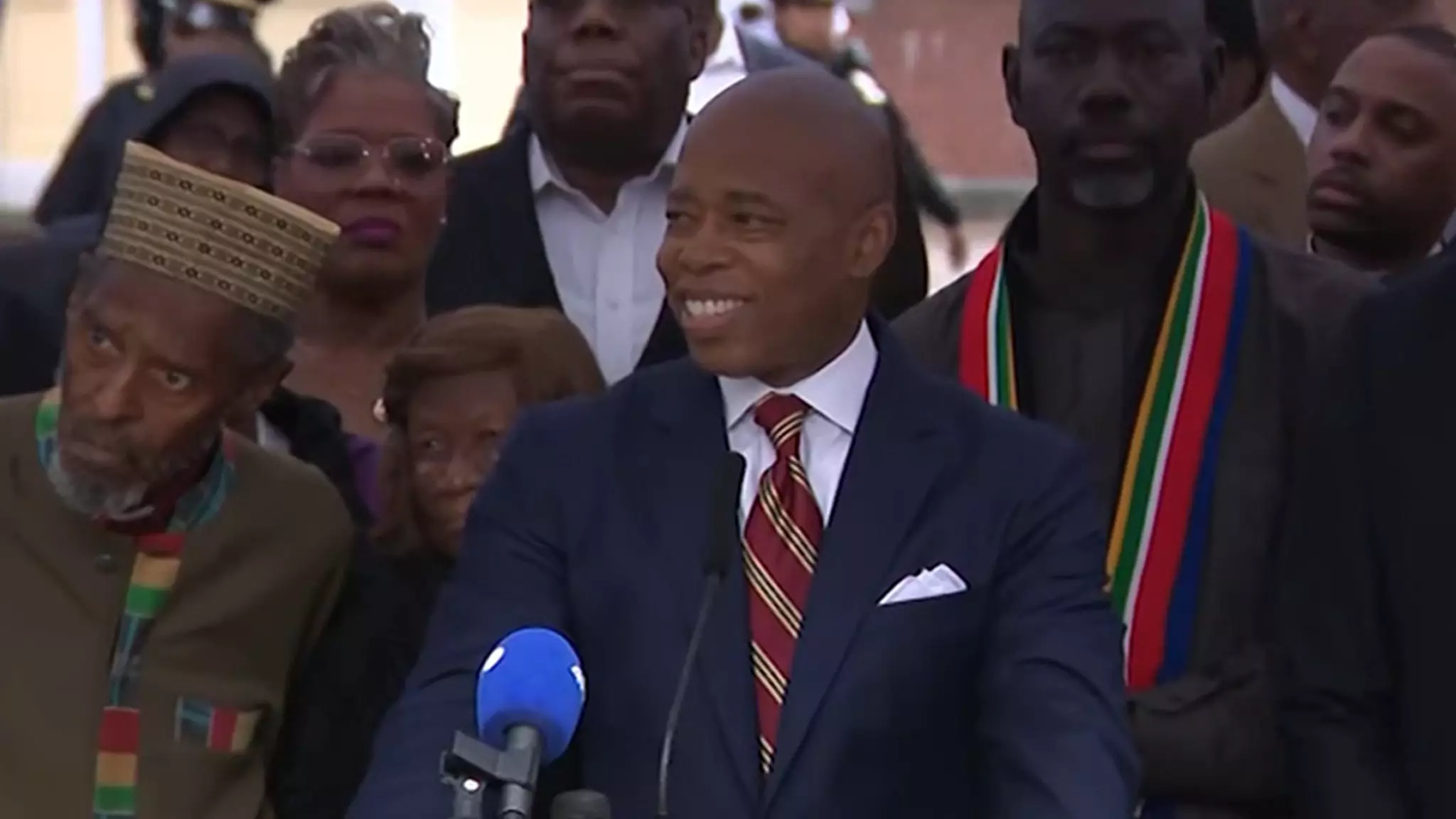In a surprising twist in the political arena, Mayor Eric Adams’ administration has been rocked by serious allegations, as the U.S. Attorney’s Office recently unsealed a significant 57-page indictment against him. With charges including campaign finance violations, bribery, and conspiracy, the mood surrounding this indictment is anything but dull. Perhaps most striking is the Mayor’s exuberant demeanor, which contrasts sharply with the gravity of the accusations he faces. The situation paints a vivid picture of a politician that maintains an air of confidence in the face of potential downfall.
According to Damian Williams, the U.S. Attorney for the Southern District of New York, the indictment postulates that Adams engaged in receiving illicit benefits from foreign entities, including ties to Turkish officials. These allegations raise serious questions regarding the integrity of local governance and the sanctity of electoral processes. Specifically, the purported scheme involved substantial campaign donations funnelled through U.S.-based straw donors, essentially bypassing legal limitations on contributions from international sources. Such practices not only undermine the legitimacy of his election endeavors but also suggest a troubling precedent for the influence of foreign entities in American politics.
Further compounding the seriousness of the allegations is the assertion that Adams exploited city programs designed to support smaller campaigns. By channeling large contributions through intermediaries in smaller increments, he reportedly defrauded a system meant to level the playing field for candidates with less financial backing. Such manipulation raises alarm bells about accountability and transparency within political systems, as it seems to prioritize personal gain over ethical governance.
In addition to financial improprieties, the indictment outlines that Adams allegedly accepted travel benefits from a foreign official, purportedly allowing him to travel widely at little to no cost. This failure to disclose such potentially self-serving favoritism deepens the concerns surrounding his leadership ethics, hinting at a troubling willingness to compromise the public trust for personal advantage.
In a striking display of resilience, Adams remains unapologetically defiant in the wake of these legal troubles. His public statements indicate a refusal to step down from his position, suggesting an unshakeable belief in his innocence or perhaps a desire to project strength in a perilous situation. Such composure under pressure raises inquiries regarding his political acumen and determination to navigate through this tumultuous chapter without losing the public’s faith.
As the investigation unfolds, the implications for New York City are substantial. Beyond the immediate ramifications for Adams’ political career, the unfolding drama could influence the city’s governance, civic trust, and the broader electoral landscape. The public’s reaction to these charges may shape future policies regarding campaign finance and foreign influence, echoing throughout the corridors of power both locally and nationally. The saga of Eric Adams serves as a cautionary tale of the potential pitfalls of governance, accountability, and the allure of power.

